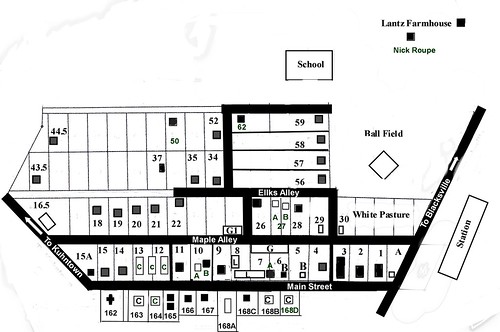Sam Kerr’s ACL injury poses fresh conundrum for Matildas ahead of Olympics
Sam Kerr #SamKerr

Sam Kerr has ruptured her anterior cruciate ligament. It’s devastating. Devastating for Kerr, for Chelsea, for the Matildas, and for Australian football.
Kerr suffered the injury during a Chelsea training camp in Morocco; ruled out of the rest of the Women’s Super League season, the UEFA Women’s Champions League campaign, and the Matildas’ Olympic qualifying playoffs with Uzbekistan in February. No timeline was put on her recovery by either Chelsea or the Matildas, but it’s incredibly difficult to see how this doesn’t ensure the absence of Australia’s record goalscorer at the Olympics, assuming they qualify.
The Paris tournament starts in just over seven months. The bare minimum modern medical science provides for an ACL recovery is six, with elite athletes almost inevitably needing longer to return to something approximating full fitness. Ellie Carpenter took nine months before she could return and more before she began to look like her pre-injury self. Kerr is a 30-year-old dynamo – not 22, like Carpenter was – whose game is elevated to world class levels by her explosive movement and ability to dominate opposition defences. A return in time for Paris would be among the most miraculous recoveries ever seen in sport, even before any disclaimers were added surrounding the level of play she could reach.
After a disrupted World Cup campaign, Sam Kerr must now sit out for even longer on the side lines. Photograph: Eurasia Sport Images/Getty Images
Even after the most thorough rehabilitation , players who have had one ACL injury are at greater risk of another, and rushing a return only increases that risk. We have recent evidence of Kerr hastening back from a calf injury during the Women’s World Cup – but that carries the qualifier that it was a once-in-a-lifetime event and she’d already been named in the squad. This time around, there’s a greater level of responsibility and obligation to her wellbeing on the part of Australia’s coach, Tony Gustavsson, and his sports science team that entails not only her long-term ability to contribute for the Matildas but also the talismanic role she plays for football, especially women’s football, on a global scale.
The Olympics is still a major tournament in which Australia will be desperate to secure a first medal – but it doesn’t exist in the same kind of all-encompassing vacuum a home World Cup did. Kerr will be relied upon as a key contributor on the road to the 2027 Women’s World Cup (if she wants to be) and it’s likely that Australia will host the 2026 Women’s Asian Cup – another opportunity to lift a major trophy on home soil.
With another global superstar out with an ACL injury reiterates the reckoning that women’s football is facing with this scourge. The injury has ripped through Kerr’s former home of the A-League Women this season. Nat Tobin, Chelsea Blissett, Grace Kuilamu, Grace Wisnewski and Marisa van der Meer among those that have gone down, as has rising Matildas attacker Holly McNamara, who suffered a third ACL tear at just 20 years old, right after being called up to the senior national team.
Sam Kerr’s absence could see Mary Fowler make the next leap in her still young but remarkable career. Photograph: Dan Himbrechts/AAP
McNamara’s absence gives Gustavsson an even more difficult task in efforts to plan for Paris without the most nailed-on starter in his 18-player squad. Assuming he retains a 4-4-2 formation, a front line of Caitlin Foord, Emily van Egmond, Mary Fowler and Hayley Raso shapes as the most likely deployment – the same that devastated Canada on the counter during the World Cup. After defeats against Canada in recent friendlies demonstrated the Matildas’ foibles in possession without Kerr, they will likely fall back on their strength of high-speed transitional football to an even greater degree. (Kerr’s injury will almost certainly give Football Australia an even greater resolve to retain Gustavsson amid reported interest from Sweden’s men’s side to prevent further disruption.)
skip past newsletter promotion
Sign up to Moving the Goalposts
No topic is too small or too big for us to cover as we deliver a weekly roundup of the wonderful world of women’s football
Privacy Notice: Newsletters may contain info about charities, online ads, and content funded by outside parties. For more information see our Privacy Policy. We use Google reCaptcha to protect our website and the Google Privacy Policy and Terms of Service apply.
after newsletter promotion
Importantly, however, Australia still does possess the talent, assuming proper utilisation, to challenge. Steph Catley is one of the great leaders in Australian football history, who has already demonstrated an ability to rally this side together in the absence of Kerr. Foord is a genuinely world-class player. And then there’s Fowler.
There’s always been something about Mary, it’s why she went to the 2019 World Cup as a 16-year-old, before she’d even played a professional club game. Such is the cruel nature of football’s unyielding march onward, Kerr’s absence could see Fowler make the next leap in her still young but remarkable career as she seeks to fill the chasm-like void left by her captain.
Kerr’s injury is devastating. The team will rally around her and, in time, she will rally around them. But as Paris looms, a team that has captured Australia’s heart must now chart a course to give their public a new moment to savour.